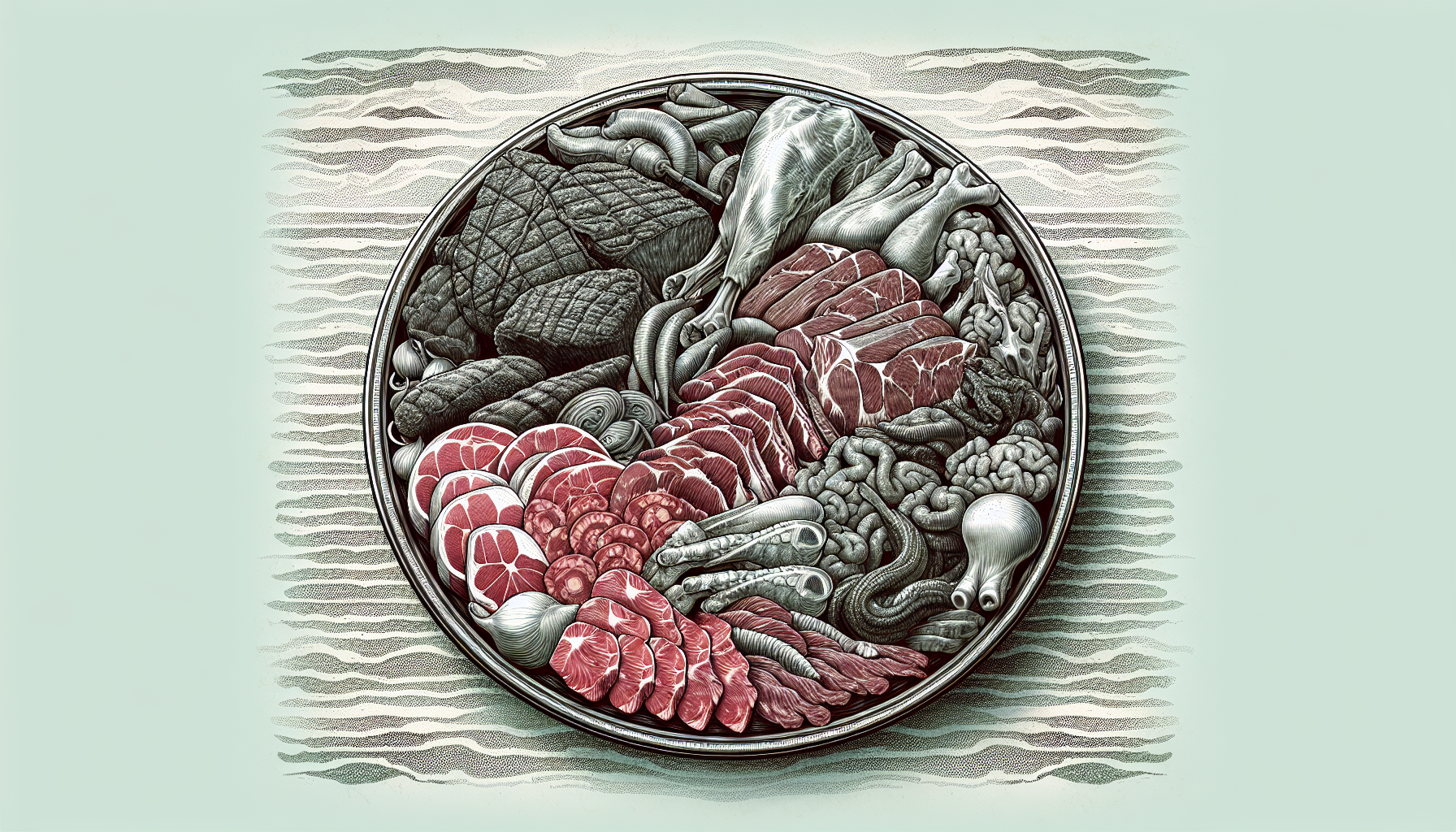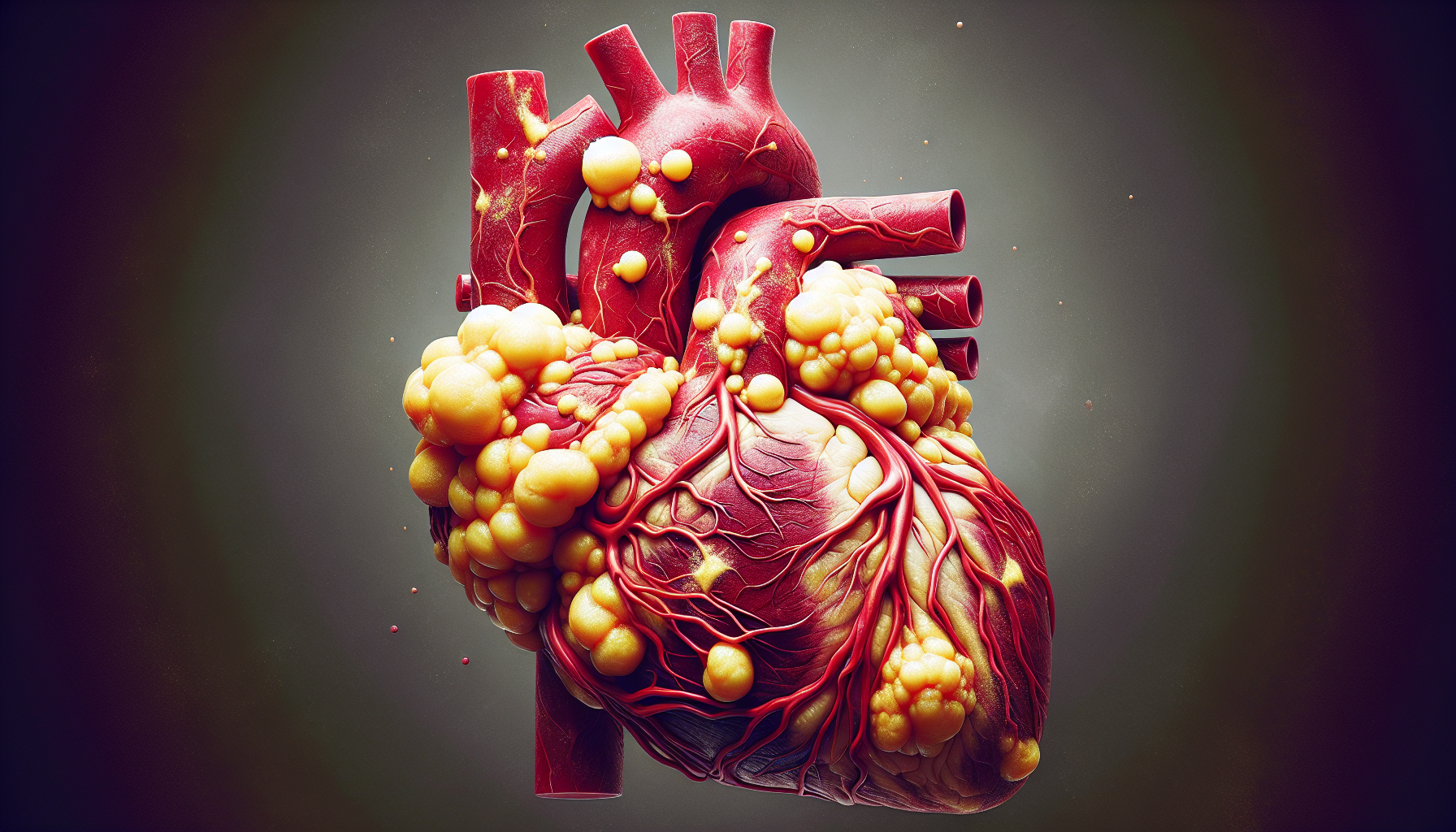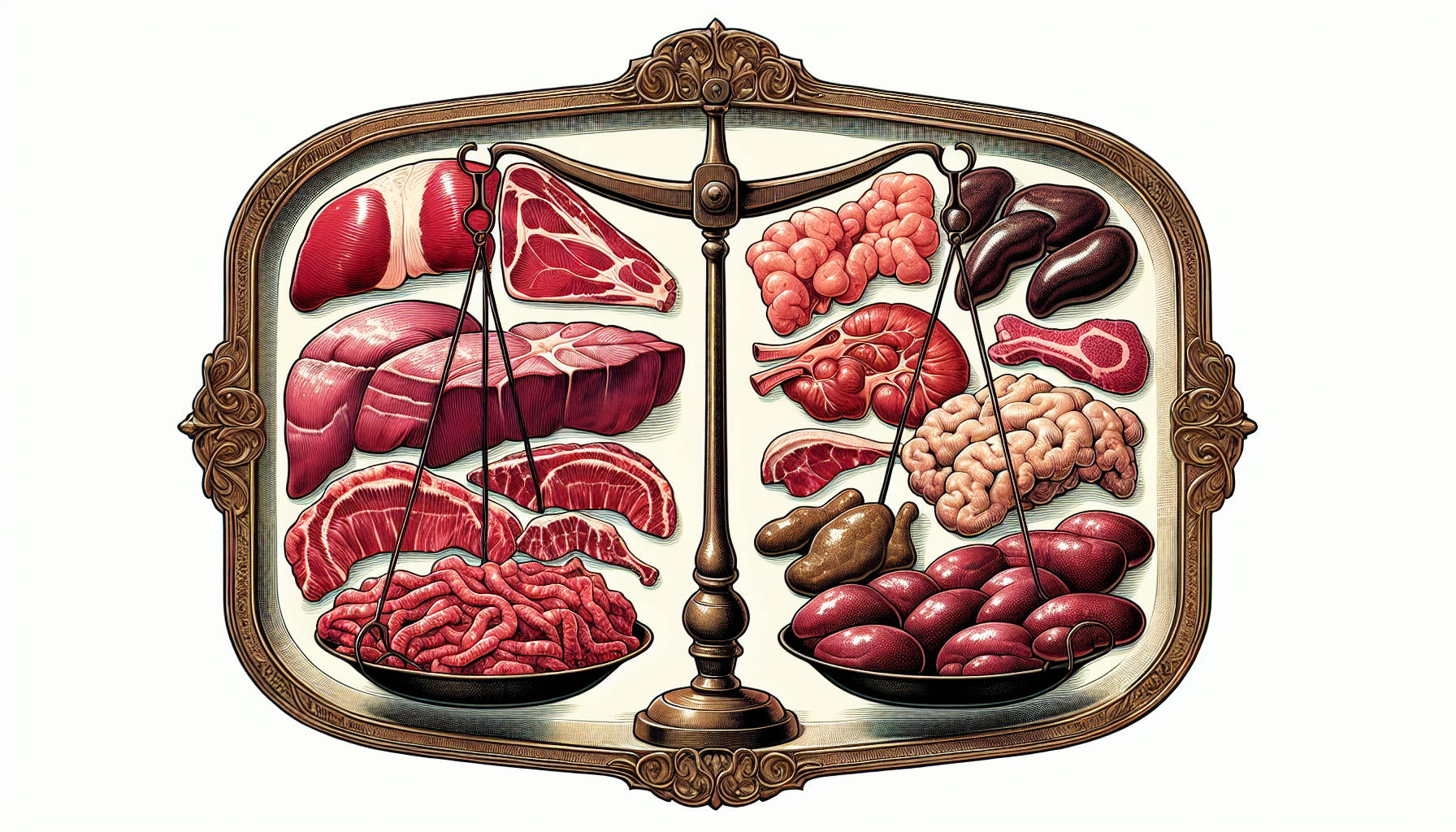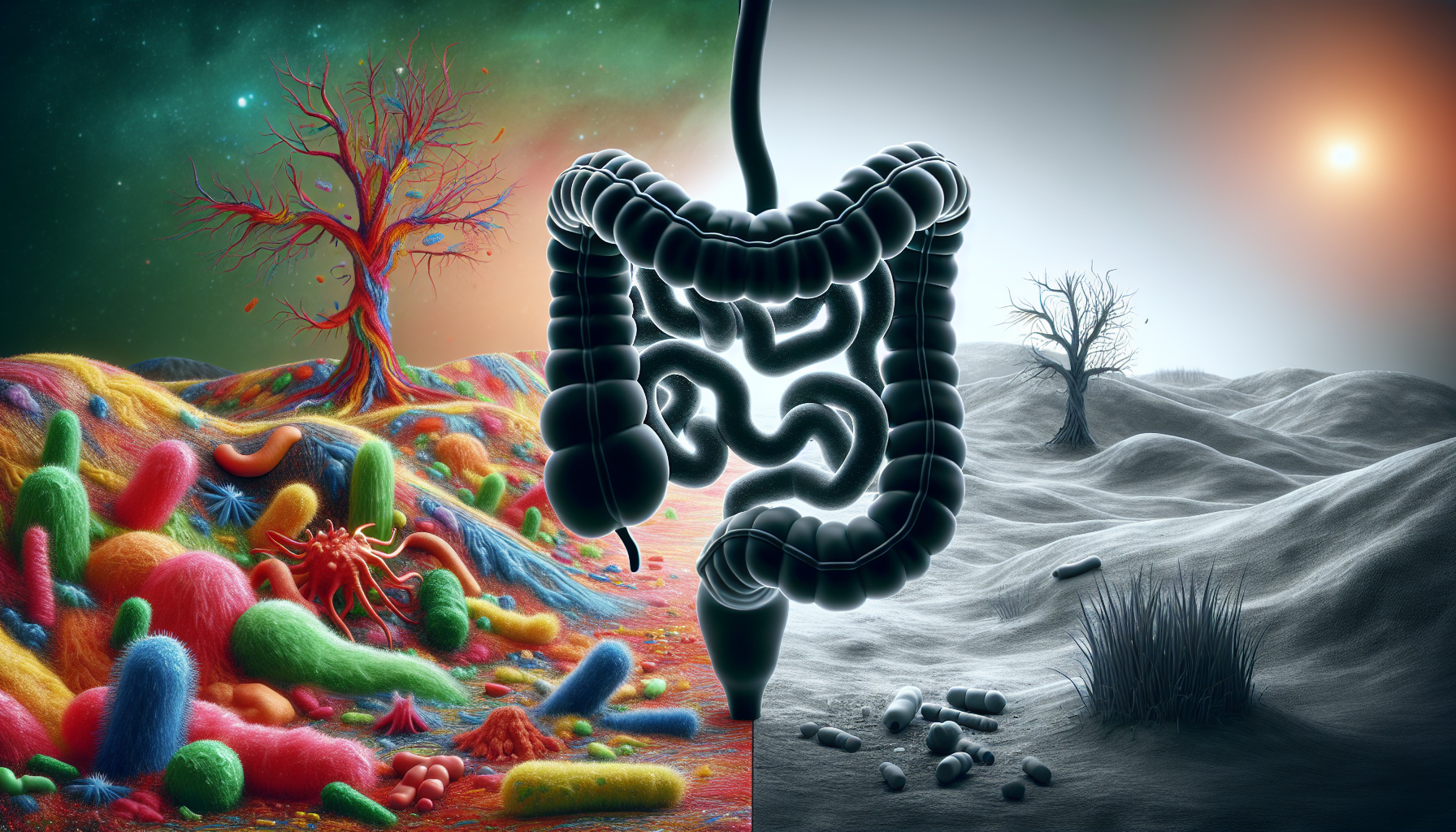Exploring the Debate: Why Is the Carnivore Diet So Controversial?

The carnivore diet, a regimen that exclusively embraces animal products, stands at the center of a fiery debate in nutrition and health circles. But why is the carnivore diet so controversial? It challenges deeply held beliefs about balanced eating, confronts concerns over potential health risks and nutritional deficiencies, and stirs up environmental and ethical questions. Its strict zero-carb, high-protein approach defies conventional dietary advice, positioning it as an unconventional outlier. This article delves into the contentious issues that make the carnivore diet a hot topic, and aims to dissect the science, the anecdotes, and the arguments that feed into its polarizing reputation.
Key Takeaways
- The carnivore diet, which excludes all plant-based foods in favor of animal products, may lack certain vital nutrients and pose potential health risks, including scurvy, kidney stones, and heart disease.
- While the carnivore diet is high in protein and may support weight loss and enhance satiety, it raises concerns for cardiovascular health due to high levels of saturated fat and cholesterol, requiring consideration of individual responses to dietary cholesterol.
- The diet’s health, environmental, and ethical implications invite scrutiny, with experts recommending more balanced approaches such as the ketogenic diet, and highlighting the importance of personalized nutrition tailored to individual needs.
The Core of Controversy: Eliminating Plant Foods

The carnivore diet’s controversy stems from its radical departure from conventional dietary norms. It completely eliminates plant-based foods, focusing exclusively on meat and other animal products. Imagine walking into a restaurant or a social gathering and finding that your diet restricts you to a very narrow range of food options. This can be a daunting challenge for those following the carnivore diet, as it can be difficult to find high-quality meat in many dining establishments. In response to this challenge, some individuals may choose to add occasional plant foods to their otherwise all-meat diet.
However, the elimination of plant foods goes beyond just limiting food choices. By focusing solely on animal products, the carnivore diet raises questions about its long-term nutritional sufficiency. Fruits, vegetables, legumes, and whole grains are rich sources of essential nutrients and dietary fiber. By excluding these foods, the carnivore diet may lack certain vital nutrients, leading to potential health risks.
But what about the carnivore diet’s zero-carb philosophy? And what does it mean to consume only animal products? Let’s delve deeper into the meat of the matter.
The Zero Carb Philosophy
The carnivore diet, unlike other low-carb diets like the ketogenic diet, is a zero-carb diet that excludes all plant foods and focuses exclusively on animal foods. Now, you might be wondering, why zero carbs? The answer lies in a metabolic state known as ketosis, where the body uses fats instead of glucose as its primary energy source. When on a zero-carb diet, the body produces ketones, which serve as an alternative energy substrate for the brain and muscles.
However, just because a diet is zero-carb doesn’t automatically mean it will induce ketosis. The carnivore diet’s high protein intake can lead to a process called gluconeogenesis, where the body converts non-carbohydrate substances, including proteins, into glucose for energy. This can prevent the body from entering ketosis, even though it’s consuming no carbs.
Despite these challenges, carnivore dieters persist in their adherence to the diet, consuming only animal products in pursuit of their health and wellness goals. Let’s explore what this meat-centric diet looks like in practice.
The Meat of the Matter: Only Animal Products
The carnivore diet involves eating primarily animal foods, making it a meat lover’s dream. Carnivore diets consist of items like steak, burgers, other red meats, and fat-dense foods derived from meat such as tallow and lard. Even dairy products like milk, cheese, yogurt, and butter are technically permitted, although individuals must experiment to determine their individual tolerance to these foods.
However, this dream can quickly turn into a nightmare as eating exclusively red meat and animal products can pose health risks. For example, raw beef liver can contain parasites like Toxocara canis, and raw pork can harbor tapeworms. Moreover, wild game meats can be infested with roundworms.
Within the carnivore community, some follow a strict version known as the lion diet. This diet is limited to beef, salt, and water exclusively. As you can imagine, this diet’s restrictive nature can pose significant challenges, not only in terms of nutritional balance but also when it comes to sourcing high-quality meat.
Saturated Fat and Cholesterol Concerns

One of the main health concerns associated with the carnivore diet is its high intake of saturated fat and cholesterol. Foods like fatty steaks, which are staples in the carnivore diet, can elevate cholesterol levels, potentially increasing the risk of heart disease.
Consider the case of Ryan Munsey, an athlete who adopted the carnivore diet. Munsey’s cholesterol ratio was 3.6 to 1, slightly above the considered optimal ratio of 3.4 to 1. However, some experts challenge the conventional wisdom about cholesterol and the carnivore diet.
- Dr. Paul Mason
- Dr. Paul Saladino
- Dr. Ken Berry
- Dr. Rob Cywes
These experts argue that there’s more to the story when it comes to cholesterol and health.
They contend that while a carnivore diet might result in elevated LDL-cholesterol levels, it could also lead to favorable HDL-cholesterol and triglycerides levels. This is a complex issue that underscores the need for more research and a nuanced understanding of how diet impacts our health.
The Protein Predicament: Too Much of a Good Thing?
The carnivore diet is a high-protein diet. While protein is an essential nutrient needed for various bodily functions, its excessive intake may have potential downsides. For instance, a diet high in protein, such as that prescribed by the carnivore diet, potentially risks overburdening the kidneys and increasing the likelihood of developing gout and kidney stones.
That said, high-protein diets have their advantages. They have been found to aid in weight loss due to protein’s capacity to enhance satiety and boost metabolic rates. In fact, research indicates that individuals consuming greater quantities of protein can experience more significant weight loss and reduction in fat mass compared to those ingesting lesser amounts of this macronutrient.
But what about the types of meat consumed in the carnivore diet? Is there a difference between muscle meat and organ meats when it comes to nutritional balance? Let’s dive into this topic.
Muscle Meat vs. Organ Meats

In the carnivore diet, the type of meat consumed matters. Focusing only on muscle meat can lead to deficiencies in certain nutrients, such as B vitamins and vitamin C. This is where organ meats come into play, making eating meat a more balanced and nutritious experience.
To adhere to a carnivore diet long-term and maintain nutrient balance, it’s crucial to incorporate organ meats. Organ meats, like liver and heart, are packed with nutrients that aren’t as abundant in muscle meats. They are rich in vitamins A and B, iron, and other essential nutrients.
Including a variety of animal products, from muscle meats to organ meats, can help ensure a more balanced nutrient intake. However, the exclusion of plant foods remains a point of concern, as it can lead to potential nutrient deficiencies and health risks.
Nutrient Deficiencies and Health Risks
The carnivore diet’s exclusion of plant foods raises concerns about potential nutrient deficiencies. For instance, vitamin C, a nutrient not found in muscle meats, could lead to scurvy if not for the intake of specific organ meats like thymus and spleen or vitamin C supplementation.
The high-protein nature of the carnivore diet can also pose certain health risks, including:
- Increased risk of kidney stones
- Potential contribution to the development of osteoporosis, potentially due to changes in bone resorption or impaired kidney function
- Higher rates of heart disease due to the elimination of food groups like fruits and vegetables.
However, some advocates of the carnivore diet suggest that their specific diet results in different requirements for essential nutrients. For example, they argue that a lower need for vitamin C may be possible due to the absence of transport competition with glucose. But this perspective, like many aspects of the carnivore diet, remains controversial and warrants further research.
The Carnivore Diet and Gut Health

The impact of the carnivore diet extends beyond nutrient intake and cardiovascular health. It can also affect gut health. Research suggests that the carnivore diet could result in damage to the colon and degradation of overall gut health, with studies suggesting a link between diets lacking in fiber and a higher risk of colon cancer.
Initial side effects of adopting a carnivore diet can include conditions such as:
- gas
- bloating
- abdominal pain
- loose stool
These side effects are due to the removal of plant-based dietary fiber. A diet high in protein but low in fiber, like the carnivore diet, can lead to the proliferation of certain gut bacteria that produce harmful byproducts, potentially disrupting the gut microbiome.
Moreover, the exclusion of plant foods eliminates the intake of beneficial plant compounds and antioxidants, which may have untold impacts on long-term health. This underscores the importance of a balanced diet that includes a variety of food groups, not an only meat-based approach.
Weight Loss Wonders or Wellness Woes?
The carnivore diet is not without its potential benefits. It can potentially lead to weight loss due to low blood sugar, limited food variety which may lead to a natural calorie deficit, and high satiety from a protein and fat-rich diet. Moreover, individuals consuming only animal products have reported a high level of satisfaction with their diet and believe they are in good health, suggesting a positive psychological effect.
The carnivore diet has also been linked to improvements in certain chronic medical conditions such as obesity, diabetes, and hypertension, indicating potential health benefits. However, it’s important to note that these are individual experiences and may not be applicable to everyone.
Indeed, the carnivore diet, like any extreme dietary approach, may not be suitable for everyone. Its potential benefits should be weighed against its potential risks, and individual health status and nutritional needs should be taken into account.
The Evolutionary Argument: Modern Humans and Ancestral Diets
Some proponents of the carnivore diet argue for its naturalness from an evolutionary perspective. They point out that human anatomy, including dentition and gut structure, indicates an adaptation to eat both meat and plant-based foods. Neanderthals, closely related to modern humans, were functional carnivores, suggesting ancestral human diets could heavily rely on meat.
However, a purely carnivorous diet might not provide all nutrients essential for human health. Observations of populations like the Inuit, whose diet was primarily meat-based, show an absence of many chronic diseases prevalent in modern society.
These observations suggest that while it’s common to eat meat for its high bioavailability of certain nutrients, a balanced diet that includes both animal and plant-based foods may be preferable for optimal health.
The Carnivore Diet in Athletic Performance
The carnivore diet has been gaining traction among athletes. Strength athletes are leveraging this diet for high protein intake to support muscle repair and growth, and some benefits they have reported include:
- Increased muscle mass
- Increased strength
- Reduced inflammation
- Quicker recovery post workouts
The carnivore diet shifts energy utilization from carbohydrates to dietary fats, which can be significant for athletes seeking improved body composition and strength. However, such a diet may need to be tailored with additional nutrients or supplements to meet the high-intensity energy demands of athletes.
But it’s important to note that responses to the carnivore diet among athletes can vary widely, and there is a lack of peer-reviewed research on the long-term performance and health outcomes. This underscores the need to understand individual variability and the necessity of scientific investigation.
Athlete Ryan Munsey’s experience provides an example of the dietary adjustments athletes on the carnivore diet may need to make, such as significantly increasing daily protein intake.
Environmental and Ethical Implications
The implications of the carnivore diet extend beyond individual health. There are also environmental and ethical considerations to bear in mind. Large-scale livestock farming, which the carnivore diet relies on, contributes to greenhouse gas emissions, a key driver of climate change.
The carnivore diet, being solely based on animal products, poses challenges for global sustainability. It is resource-intensive, requiring more land and water and generating higher greenhouse gas emissions per calorie than plant-based foods. Meat production can also lead to deforestation and habitat destruction, resulting in the displacement or even extinction of species.
Moreover, the livestock sector contributes to climate change through emissions of greenhouse gases like methane and nitrous oxide from ruminant digestion, manure management, and feed production. Compared to plant-based diets, the carnivore diet has a significantly larger environmental impact due to a greater need for water and land resources.
The carnivore diet can also contribute to water pollution through runoff laden with fertilizers and manure from livestock production. A shift towards more sustainable food production and consumption practices is necessary to address the environmental concerns raised by the high demand for meat in the carnivore diet.
Alternatives to the Extreme: Seeking Balance
While the carnivore diet has its advocates, many nutrition experts propose more balanced and sustainable alternatives. One such alternative is the ketogenic diet, a low-carb, moderate protein, and high-fat approach that incorporates plant-derived foods.
The ketogenic diet provides nutritional balance and is easier to maintain long-term in comparison to the carnivore diet. Experts like Dr. Michael Ruscio propose adopting a keto diet as a more sustainable and realistic long-term eating plan than extreme diets that eliminate entire food groups.
The restrictive nature of the carnivore diet, which completely removes carbohydrates, poses significant challenges for sustained long-term adherence. A balanced diet that includes a variety of food groups, both animal and plant-based, is likely a more sustainable and healthful approach.
Personalized Nutrition: One Size Does Not Fit All
Just as the carnivore diet may not be suitable for everyone, it’s essential to recognize that no one-size-fits-all when it comes to nutrition. This is where personalized nutrition comes in. Personalized nutrition tailors dietary advice based on individual data like metabolism, biochemistry, and microbiome.
Advances in technology, such as DNA tests and at-home blood tests, have greatly enhanced the accessibility of personalized nutrition data. This approach provides a clear way to assess individual nutritional needs and offers the flexibility to adapt as the individual progresses.
Genetic adaptations, such as those for lactase and amylase production, play a role in determining tolerance and utilization of particular nutrients such as dairy and starch. Genetic-based dietary typing, such as the proprietary algorithm used by Gene Food, can help devise personalized nutrition plans.
In the end, the best diet is one that is tailored to an individual’s unique needs and circumstances, taking into account personal factors such as health and habits.
Summary
In conclusion, the carnivore diet, with its elimination of all plant foods, high intake of meat, and potential health and environmental implications, is a controversial dietary approach. While some people have reported health benefits, including weight loss and improved chronic medical conditions, the diet’s potential health risks and its environmental impact cannot be ignored. Ultimately, the best dietary approach is one that takes into account individual nutritional needs and promotes a balanced intake of nutrients. As we continue to explore the world of nutrition, let’s strive to make informed dietary choices that promote both our health and the health of our planet.
Frequently Asked Questions
What does the carnivore diet consist of?
The carnivore diet primarily consists of animal foods, such as steak, burgers, red meats, and fat-dense foods derived from meat like tallow and lard. Enjoy your carnivorous meals!
What are the potential health risks of the carnivore diet?
The potential health risks of the carnivore diet include nutrient deficiencies, increased risk of heart disease, potential damage to the colon, and a higher risk of colon cancer. It's important to consider these risks before starting this diet.
Can the carnivore diet aid in weight loss?
Yes, the carnivore diet can aid in weight loss by promoting low blood sugar, natural calorie deficit, and high satiety from a protein and fat-rich diet. Try incorporating it into your weight loss plan for potential benefits.
What are the environmental implications of the carnivore diet?
The carnivore diet has environmental implications such as high greenhouse gas emissions from large-scale livestock farming, deforestation, and habitat destruction. This can have a significant impact on the environment.
Are there more balanced alternatives to the carnivore diet?
Yes, the ketogenic diet offers a more balanced alternative to the carnivore diet by incorporating plant-derived foods and following a low-carb, moderate protein, and high-fat approach.
